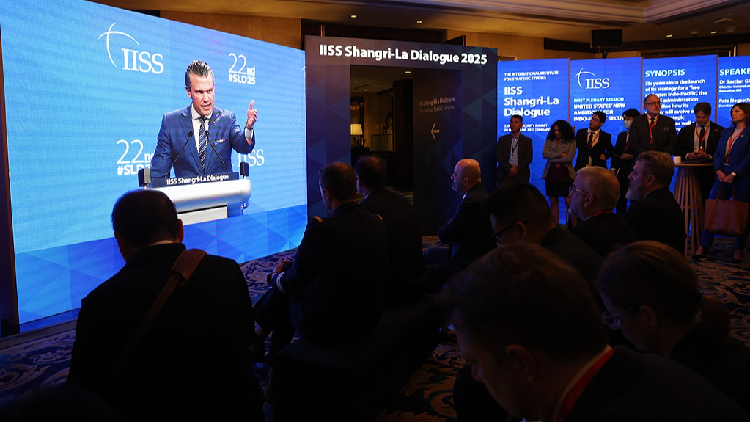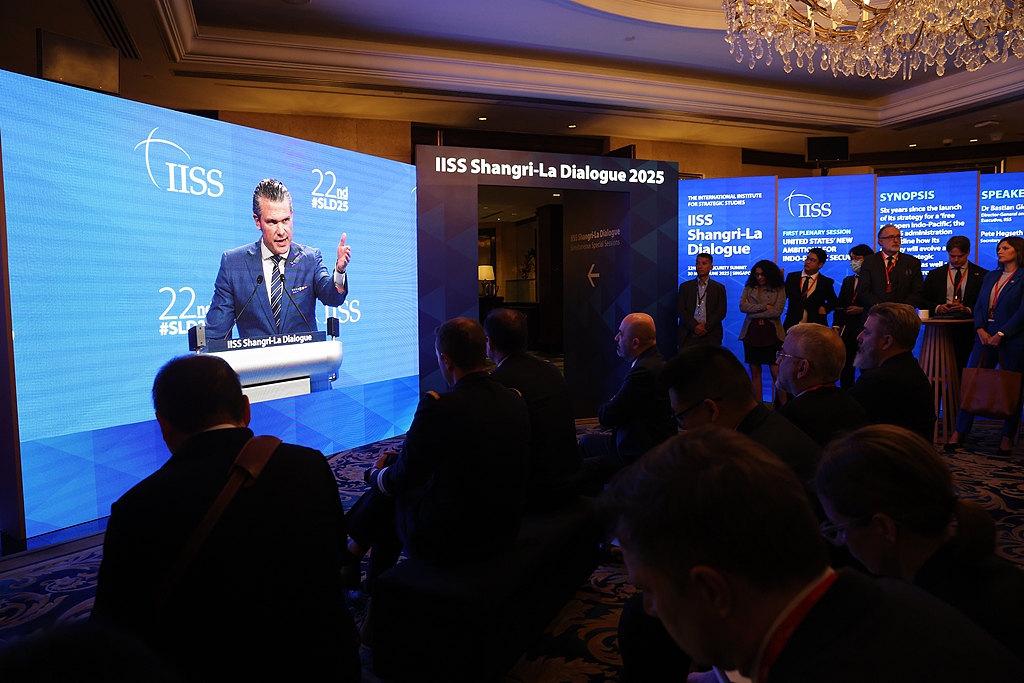Experts Condemn Hegseth's Remarks as Provocative and Detrimental to Regional Stability
Experts slam U.S. Defense Secretary Pete Hegseth's call for Asian nations to boost military spending amid China concerns.


U.S. Secretary of Defense Pete Hegseth sparked a flurry of criticism during his recent address at the 22nd Shangri-La Dialogue in Singapore, where he urged Asian nations to bolster military spending in response to what he characterized as an "imminent threat" from China. Regional experts and policy analysts have voiced concern that such rhetoric from Washington could inflame existing tensions rather than promote security or stability in the Asia-Pacific.
Many observers stressed that the prevailing sentiment among Asian governments is not aligned with the narrative of an immediate Chinese threat. Instead, there is growing unease over the consequences of heightened U.S. assertiveness. Several regional scholars pointed out that while only a handful of countries in Southeast Asia view China through a lens of apprehension, the majority remain focused on development and diplomacy. "Short of a very few countries, not many in this part of the world see China as an imminent threat and would up their [defense] spending," commented Dylan Loh, assistant professor at Singapore's Nanyang Technological University.
Rommel Banlaoi, chairman of the Philippine Institute for Peace, Violence and Terrorism Research, challenged the premise of the U.S. as a stabilizing force in the region. He noted, "The idea of the U.S. positioning itself as a 'stabilizer' in the region is deeply flawed. The U.S. is trying to reassert its leadership in the Indo-Pacific and is working hard to rally Asian countries behind it, largely because it views China's growing influence in the region as a direct challenge. But in terms of fostering peace and stability, the U.S. has a track record that speaks for itself. Its interventions in the Middle East have triggered multiple conflicts and regional wars. By contrast, China has not initiated any regional wars."
In a group interview, Da Wei, director of the Center for International Security and Strategy at Tsinghua University, described Hegseth's statements as "highly provocative". He argued that the message signaled a continuation of Washington’s confrontational "Indo-Pacific strategy," raising alarms about the impact on regional cooperation and trust. Da also pointedly noted what he described as inconsistency in the U.S. approach: "The U.S., showing a clear lack of respect for its own neighbors such as Canada and Panama, is asking China to respect its neighbors."
Da emphasized how U.S. calls for greater defense spending go hand-in-hand with trade policies—such as tariffs—that slow economic growth in partnering Asian nations. "This significantly undermines the credibility of the U.S.'s intentions," Da concluded. He further suggested that Hegseth’s remarks may have been made independently of coordinated White House strategy, adding that it would have been more prudent to wait for President Donald Trump to solidify the administration's overall stance toward China before making such explicit comments in an international security forum.
Zhou Bo, senior fellow at the Center for International Security and Strategy, echoed concerns about Washington’s transactional approach with its allies. "The U.S. has always emphasized the importance of the Asia-Pacific, its economic prosperity and regional influence. However, its approach to allies is one of compliance – if the allies follow Washington's demands, the U.S. will offer support. This transactional relationship raises doubts from the countries," Zhou remarked.
As the region weighs its future priorities, many policymakers argue that stability and growth are best achieved through dialogue and cooperation—not increased militarization. With key voices warning of the destructive potential of aggressive rhetoric, the Asia-Pacific remains wary of actions that could tip the balance away from peace and toward confrontation.




